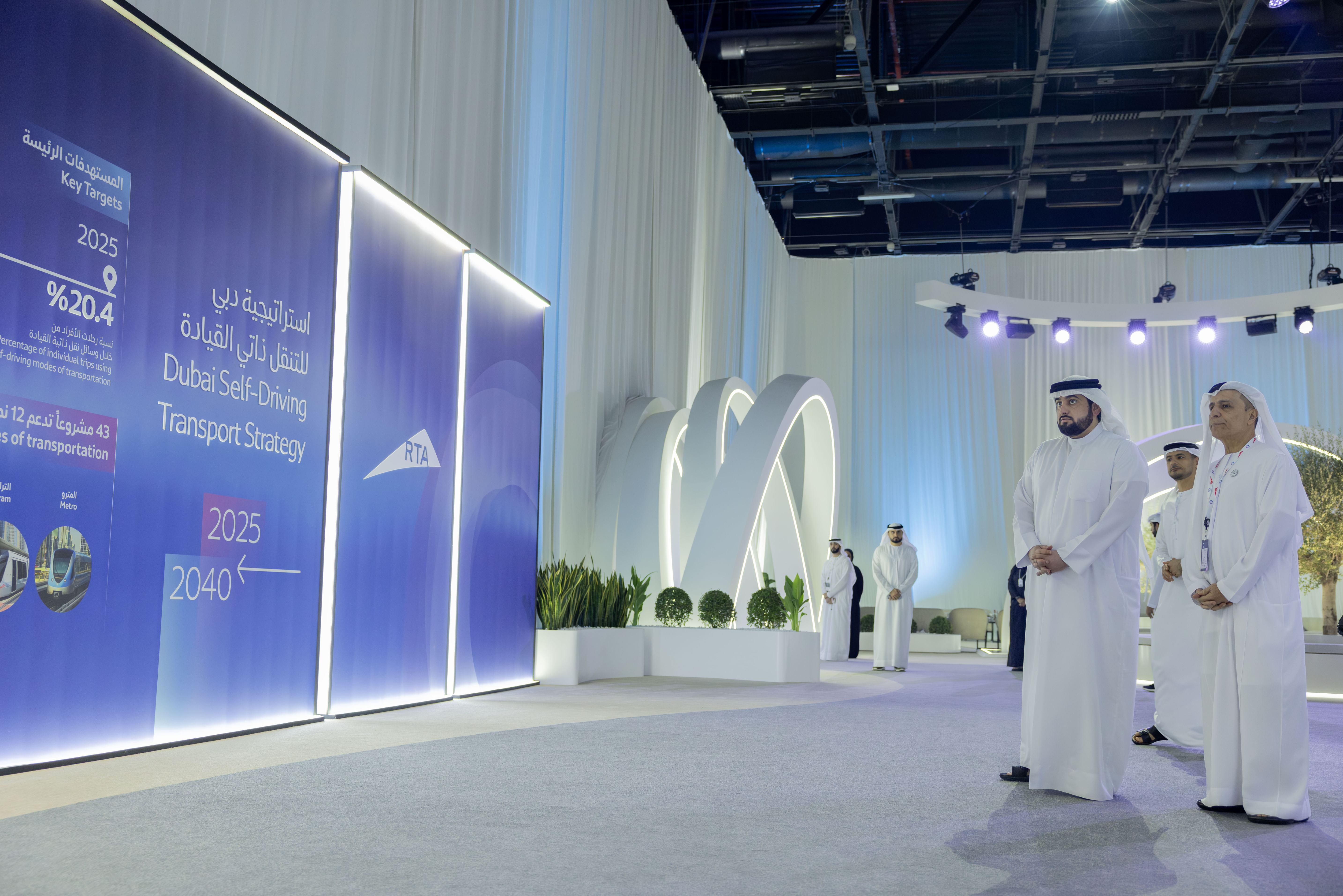Ahmed bin Mohammed opens 4th Dubai World Congress for Self-Driving Transport

Under the patronage of H.H. Sheikh Hamdan bin Mohammed bin Rashid Al Maktoum, Crown Prince of Dubai, Deputy Prime Minister, Minister of Defence, and Chairman of The Executive Council of Dubai, H.H. Sheikh Ahmed bin Mohammed bin Rashid Al Maktoum, Second Deputy Ruler of Dubai, inaugurated the fourth Dubai World Congress for Self-Driving Transport at the Dubai World Trade Centre.
Organised by Dubai’s Roads and Transport Authority (RTA), the event has brought together over 3,000 participants from around the world, along with more than 80 speakers, including senior officials, researchers, experts and developers in advanced self-driving technologies.
During the event, H.H. Sheikh Ahmed honoured the strategic partners and sponsors of the Dubai World Congress and Challenge for Self-Driving Transport. He also attended the ceremony held to honour the winners of the Dubai World Challenge for Self-Driving Transport 2025.
Upon his arrival at the venue, H.H. Sheikh Ahmed was received by Mattar Al Tayer, Director General, Chairman of the Board of Executive Directors of Dubai’s Roads and Transport Authority (RTA). H.H. Sheikh Ahmed was briefed on the model of the Dubai Self-Driving Transport Zone, which spans about 15 square kilometres across three operational zones: Al Jaddaf Metro Station, Dubai Festival City, and Dubai Creek Harbour.
The Dubai Self-Driving Transport Zone has been developed as an integrated hub featuring multiple modes of autonomous mobility, including the Dubai Metro, an autonomous bus, a logistics vehicle, a road-cleaning vehicle, a delivery robot and an autonomous abra. The Zone will offer users a choice of transport options best suited to their needs in terms of speed, cost and convenience, spanning both land and marine mobility.
H.H. Sheikh Ahmed also reviewed the Dubai Self-Driving Transport Strategy 2025–2040, which targets an increase in the share of trips made through autonomous modes of transport from 20.4 percent at present to 25 percent by 2030 and 36 percent by 2040.
During the opening ceremony, H.H. Sheikh Ahmed bin Mohammed watched a film on the Dubai World Congress for Self-Driving Transport, the first event of its kind in the Middle East. The Congress is organised as part of RTA’s efforts to support the Dubai Smart Self-Driving Transport Strategy, launched by His Highness Sheikh Mohammed bin Rashid Al Maktoum, Vice President and Prime Minister of the UAE and Ruler of Dubai, which aims to transform 25 percent of all trips in Dubai into smart, driverless journeys across various modes of transport by 2030.
This was followed by a keynote address delivered by Sol Rashidi, recognised as the world’s first Chief AI Officer and a former senior executive at several leading technology companies in North America. In her speech, she highlighted key lessons learned from the use of artificial intelligence and its applications across different sectors. She also presented a framework outlining practical cases for deploying AI technologies and integrating them effectively into daily life to enhance services and improve quality of life.
In addition, she discussed the readiness of governments and cities to adopt such future-oriented technologies through strengthening digital infrastructure, updating legislation, and building human capabilities to engage with this technological revolution.
Rashidi emphasised the importance of striking a balance between accelerating innovation and ensuring the responsible and ethical use of these technologies to guarantee sustainable benefits and strengthen public trust. She noted that the Dubai World Congress for Self-Driving Transport provided an opportunity to gain specialised insights into the future of artificial intelligence, along with the challenges and opportunities it presents to governments, the private sector, and individuals.
A film on the Dubai World Challenge for Self-Driving Transport was also screened during the opening ceremony. The Challenge offers prizes totalling US$3 million, of which US$1.2 million is allocated to honour the first and second place winners, while US$1.8 million is dedicated to supporting the operation of the Dubai Self-Driving Transport Zone.
The fourth cycle of the Challenge drew an impressive response, with participation requests exceeding the target by 170 percent. Five local and international consortia and companies qualified for the final stage.
The film highlighted field tests carried out across four Chinese cities: Guangzhou, Xi’an, Guiyang, and Suzhou. These tests were categorised into three main groups based on the operating environment. They included five stationary tests with limited vehicle movement, 17 tests for land vehicles operating within mixed road traffic on public roads, and six tests for marine vehicles. Additional controlled environment trials were also conducted, comprising three tests for each land vehicle and seven for the marine vehicle.
Mattar Al Tayer honoured the winners of the Dubai World Challenge for Self-Driving Transport. The consortium comprising WeRide and Deutsche Bahn won first place for a project that integrates a self-driving taxi with a self-driving bus, receiving a prize of US$900,000.
Second place was awarded to Zealous Technology from Singapore for a comprehensive self-driving transport solution. The project involved transporting heavy goods between warehouses and providing autonomous last-mile logistics for cargo delivery. The company received a prize of US$300,000.
The Dubai World Congress for Self-Driving Transport is a global platform dedicated to autonomous mobility. It brings together leading experts and specialists, including policymakers, technology developers, researchers, and academics, to exchange ideas and insights on connected and self-driving vehicles.
The Congress reinforces the Dubai Government’s pioneering role in the field of self-driving transport and accelerates progress towards the objectives of the Dubai Self-Driving Transport Strategy. It also aims to attract global expertise to Dubai, raise community awareness of emerging and future mobility technologies, and highlight their potential impact on investment opportunities and diverse mobility strategies.

